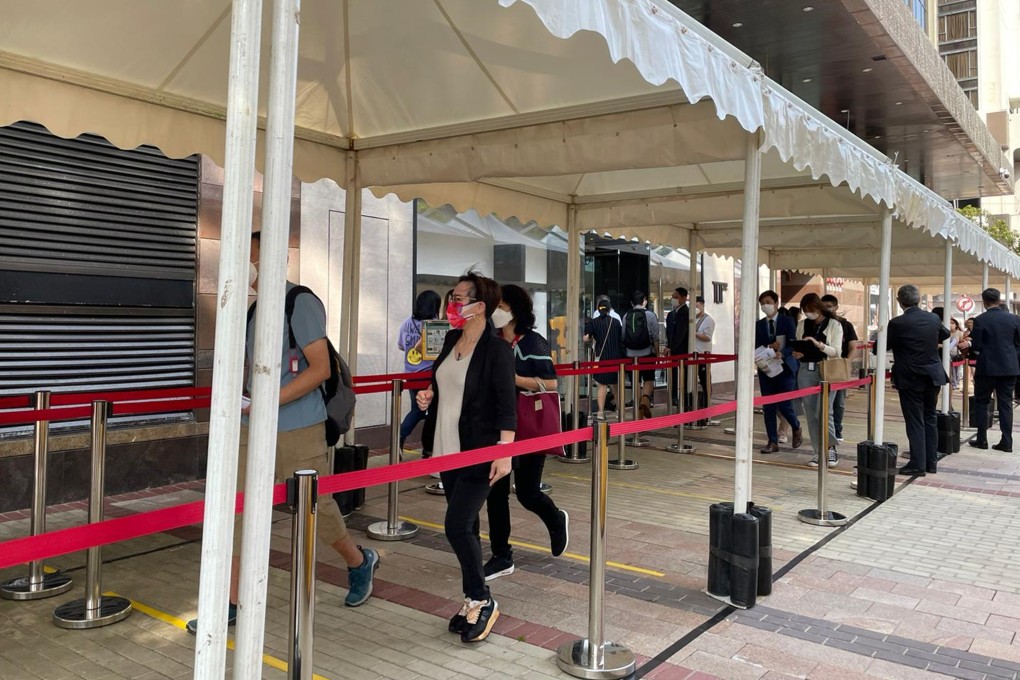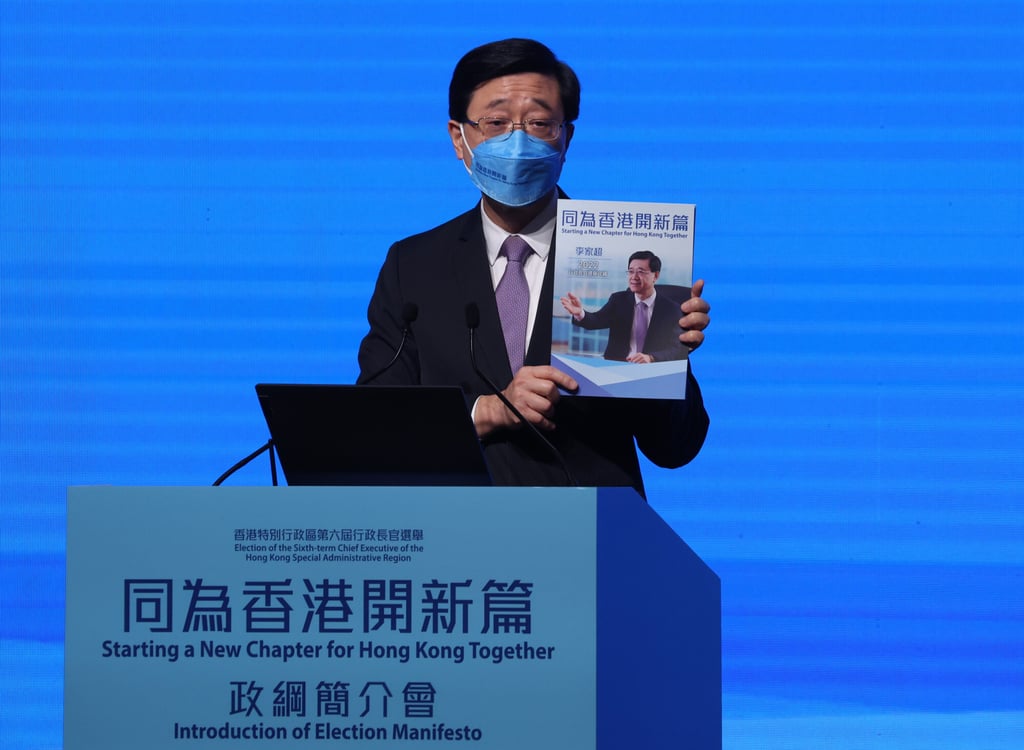Grand Mayfair I in Yuen Long sells out as Hong Kong chief executive candidate John Lee spells out housing policy
- All 388 flats on offer at The Grand Mayfair were sold out by early Friday evening
- John Lee’s housing policy includes setting up new task forces to oversee the supply of public housing and land to be managed by government ministers

Hongkongers, however, do not need any encouragement to buy flats, continuing a streak of brisk sales for developers that began last weekend after Covid-19 social distancing measures were eased.
The lone chief executive candidate on Friday made known his policies to ease the housing shortage in the world’s most unaffordable property market, where more than 220,000 residents live in the infamously labelled cage homes or subdivided flats, while families face an average wait of six years for public housing as of February, a 23-year high.

Lee’s housing policy includes setting up new task forces to oversee the supply of public housing and land to be managed by government ministers. They will look at innovative ways to boost the efficiency of public housing supply, he said.